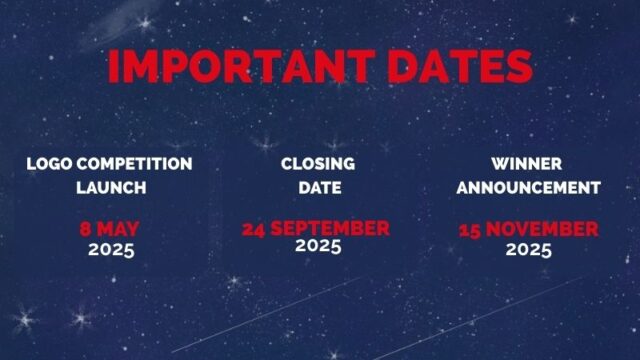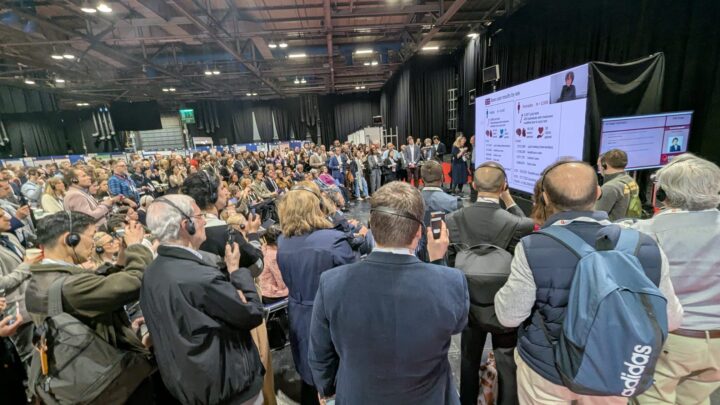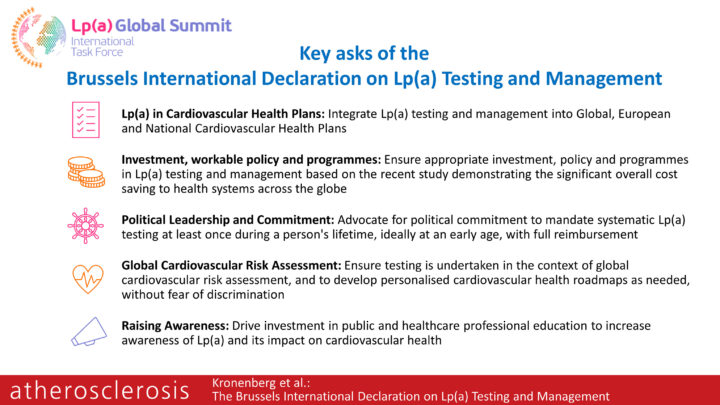Part of the Data Saves Lives Initiative
The European Patients’ Forum (EPF) has launched a new toolkit to help people understand the European Health Data Space (EHDS). This is part of the Data Saves Lives initiative.
What is the European Health Data Space (EHDS)?
The EHDS is a major EU Regulation that aims to give every EU citizen access to their health data – wherever they are in the EU, and to ensure that the data can move with them, no matter where in the EU they go.
A recent webinar hosted by EPF explained the EHDS journey. Our ambassadors took part in the training, and here are their key takeaways.
What Will Change?
Example: If you fall ill on holiday in Spain, a doctor there can access your records (with your permission) to give you safe and effective care.
Two Ways Your Data Can Be Used
Examples:
This data can be shared with other healthcare providers with your permission. You stay in control by:
Examples:
Your data is anonymised or pseudonymised (your name is removed). You can say no to this kind of use.
Note: In emergencies like pandemics, exceptions may apply.
Your Rights & Privacy
Who Oversees the EHDS?
Each EU country will have two main bodies:
What Can Patient Organisations Do?
Toolkit Suggestions:
Key Dates
| Year | What’s Happening |
| 2025 | EHDS becomes law |
| 2027 | Basic data (e.g. prescriptions) shared across EU |
| 2029 | Includes lab results, scans, discharge letters |
| 2031 | More data types added |
| 2033 | First EU Commission review |
| 2035 | Fully working system across the EU |
Why Is EHDS Important?
For Patients:
For Doctors:
For Researchers & Policymakers:
Final Thoughts
The EHDS is a big step forward, but there are challenges:
The toolkit encourages patient organisations to stay engaged and help build a system that is safe, fair, and easy to understand.
Why It Matters for the FH Europe Foundation Community
For the FH Europe Foundation Community – which includes people living with familial hypercholesterolaemia (FH) and other inherited lipid conditions – the EHDS offers a vital opportunity. It can improve early diagnosis, enable better-coordinated care across borders, and support research into rare and underdiagnosed conditions. By contributing to and benefiting from high-quality, secure data sharing, the community can help shape a future where personalised, timely, and effective care is available to all, no matter where they live in the EU.
🔗 Want to learn more? Visit the Data Saves Lives website.
📺 Watch this clip – What is Data Saves Lives
Special thanks to our ambassador, Renate Kaal-Poppelars, for sharing her insights and contributing to this piece.
Are you ready to make a difference and showcase your creative talents? We, the HoFH community under the umbrella of FH Europe Foundation, call on all artists, designers, and creative enthusiasts from all walks of life to participate in our exciting logo competition for HoFH Awareness Day!
Whether you’re a professional designer or simply someone who enjoys using art to tell meaningful stories, this is your opportunity to contribute to a powerful cause. Your design could help raise global awareness about a rare and life-threatening condition—and bring hope to those affected.
What is HoFH? HoFH is a rare genetic condition that affects individuals from all backgrounds and walks of life. It's characterised by dangerously high levels of LDL cholesterol, leading to an increased risk of premature cardiovascular disease. Despite its rarity, HoFH can profoundly impact individuals and families, making awareness and support crucial. HoFH is a genetic condition, when a child inherits a copy of the same FH-causing gene from both parents. Although it is very severe and rare, it can be treated effectively. Yet, awareness, diagnosis and equitable access to medication is a serious issue, leaving many at a risk of heart attacks and even death very early in childhood.
Why a Logo Competition? Why engage the Public? We believe that raising awareness starts with a powerful symbol that resonates with people from all walks of life. That's why we're inviting YOU to design and inspire the official logo for HoFH Awareness Day! Your design will serve as a beacon of hope, unity, and support for those affected by HoFH, while also raising awareness in the wider community and helping prevent the preventable.
Galaxy Forces United: For HoFH Awareness Day!
Your design will inspire the official logo for HoFH Awareness Day, leaving a lasting impact on the global community.
For inspiration, hear the stories from some our ambassadors on our HoFH webpage


Chyrel Lichaa (Read bio)
HoFH Patient Ambassador
Lebanon

Prof. Albert Wiegman (Read bio)
Paediatrician
The Netherlands

Prof. Marina Cuchel (Read bio)
Researcher
USA

Mateusz Szwachta (Read bio)
EAS Communication & Community Manager
Sweden

Maja Bartoszewicz Moritz (Read bio)
FHEF Rare Disease Project Manager
Poland

Marc Salloum (Read bio)
HoFH Patient Ambassador
Lebanon
Don't miss your chance to be part of something meaningful and make a difference in the fight against a rare and severe cardiovascular disease. Join us in raising awareness, promoting unity, and empowering individuals and families affected by HoFH. Together, we can create a brighter future for all.
For more information and updates, visit www.fhef.org, follow #Unite4HoFH or contact us at chyrel@fheurope.org or maja@fheurope.org.
Get creative, get involved, and let's unite for HoFH awareness!
Amsterdam, 5 May 2025 – Today, during a packed session at the European Atherosclerosis Society Congress in Glasgow, the Brussels International Declaration on Lipoprotein(a) [Lp(a)] Testing and Management was officially published in Atherosclerosis. With more than 250 attendees crowding into a standing-room-only space designed for 30, this launch marked a breakthrough moment in the fight against cardiovascular disease.

Elevated Lp(a) is an inherited, lifelong, and independent risk factor for heart attacks, strokes, aortic stenosis, and premature cardiovascular events. Affecting an estimated 1 in 5 people worldwide, more than 1.4 billion individuals, it remains dangerously underdiagnosed, with less than 2% of the population tested. This significant public health blind spot urgently demands international attention.
The Declaration was developed by the Lp(a) International Task Force (ITF), a multidisciplinary, multistakeholder group convened by the FH Europe Foundation and chaired by Professor Florian Kronenberg. The ITF aims to deliver an ambitious, five-year global strategy to make Lp(a) testing routine and ensure equitable management across populations. The work was shaped by scientific evidence, the lived experience of patients, and the political momentum generated at the first-ever Global Lp(a) Summit, held in Brussels in March 2025. The Summit was hosted by a Member of the European Parliament (MEP), Romana JERKOVIĆ, Chair of the MEP Cardiovascular Health Group, and under the patronage of the Polish EU Presidency. The event, organised by FH Europe Foundation, brought together cardiovascular health organisations, scientific experts, patient ambassadors and policy makers from the European Union and World Health Organisation.
During the Summit the results of the first international cost-effectiveness study on Lp(a) testing were shared. The research commissioned by the patient organisation and led by Prof. Zanfina Ademi of Monash University, showed the clear economic and health system benefits of incorporating Lp(a) testing into standard care.
The Brussels International Declaration builds upon the 2022 EAS Consensus Statement on Lp(a) and directly supports the ambitions of the Council Conclusions on Cardiovascular Health, adopted by all EU health ministers on December 3rd, 2024. It arrives as Europe advances towards a dedicated Cardiovascular Health Plan, planned to be published later in 2025.
Accompanied by an editorial from renowned cardiovascular leaders (Professors Jan Borén, M. John Chapman, and Chris J. Packard), the Declaration outlines five urgent policy asks:

Transformational digital tools and ethical artificial intelligence are recognised as key enablers for the implementation of systematic Lp(a) testing and the effective, personalised management of elevated Lp(a) levels. In line with the commitments set out in the Brussels Int. Declaration, progress would be driven through cross-border shared learning, robust impact assessment, and comprehensive monitoring and evaluation on an annual basis.
"The Declaration is the result of truly global collaboration," said Prof. Florian Kronenberg, Chair of the ITF. "With science, policy, and patient voices aligned, we can shift from fixing damage to preventing it. This is the future of cardiovascular health."
MEP Romana JERKOVIĆ, Chair of the MEP Cardiovascular Health Group and Host of the Summit, said “I will be taking the Brussels International Declaration on Lp(a) to the MEP Cardiovascular Health Group and ask for their endorsement. The train has left the station, and it is imperative we act in this space”.
Prof. Florian Kronenberg added: “It is not only that the scientific evidence is overwhelming. Enormous monetary savings are possible by introducing a more systematic measurement of Lp(a) in combination with the other traditional risk factors followed by the appropriate preventive treatment. Thereby much of the associated impairment of our fellow citizens through frequent heart attacks and strokes could be prevented. A shift from “we try to fix the damage” - which is often not possible - into the direction “prevent the preventable” must be the focus of the upcoming years. Each year of prevention we lose for the given individual, puts her/him at more danger."
Developed with the support of over 40 international authors and partners including the World Heart Federation, European Alliance for Cardiovascular Health, International Atherosclerosis Society, European Atherosclerosis Society, Global Heart Hub, and leading life sciences stakeholders, the Declaration is now open for endorsement by individuals, institutions, and governments worldwide. “This Declaration is the result of truly global collaboration,” said Magdalena Daccord, CEO OF FH Europe Foundation. “It reflects the best of what science, policy, and patient voices can achieve together. With political will, health system action, and citizen engagement, we can dramatically shift how Lp(a) is addressed—and how many lives are saved.”
The Declaration is now open for endorsement by individuals, health professionals, scientific societies, institutions, and governments worldwide.
Amsterdam, Netherlands, 04.05.2025: For the second consecutive year, the FH Europe Foundation (FHEF) marks May 4th—a date globally recognised for the iconic phrase “May the Force Be with You”—as HoFH Awareness Day. In 2025, the campaign embraces the theme “Galaxy Forces United: For HoFH Awareness Day”, taking the mission to new heights through powerful collaboration with our network partners, international ambassadors, patients, and their families. Together, we are building a global movement rooted in community, education, and awareness—uniting efforts to shed light on Homozygous Familial Hypercholesterolaemia (HoFH), amplify patient voices, and strengthen advocacy for early diagnosis, equitable care, and informed support at every stage of life.
Homozygous Familial Hypercholesterolaemia (HoFH) is a rare and severe genetic form of familial hypercholesterolaemia (FH) that causes extremely high levels of LDL cholesterol from birth and affects entire families across generations. It develops when a child inherits two copies of an FH-causing gene—one from each parent, both of whom typically have heterozygous FH (HeFH). While HeFH affects roughly 1 in 300 people worldwide—more than 30 million individuals—HoFH impacts approximately 1 in 300,000 and can lead to early-onset cardiovascular disease (CVD), including heart attacks, strokes, or sudden death, often during childhood or adolescence. Despite its serious and life-altering consequences, HoFH remains significantly underdiagnosed and misunderstood, resulting in avoidable complications and immense emotional and psychological strain on affected individuals and their families, already affected with HeFH. Today, it is estimated that only 10% of people living with FH globally have been diagnosed.
HoFH Awareness Day was officially launched on May 4th, 2024, with the incredible support of leading international organisations committed to heart health and cholesterol disorders. Among the first to rally behind the cause were the World Heart Federation, International Atherosclerosis Society, European Atherosclerosis Society, Global Heart Hub, the Iraqi Lipid Clinics Network, and the Family Heart Foundation in the United States. Their collective endorsement helped spark a global conversation about HoFH—one grounded in awareness, education, community-building, and the urgency of preventing preventable heart disease.
“This campaign embodies the power of unity across galaxies—metaphorical and real,” said Magdalena Daccord, CEO of FH Europe Foundation. “We are building momentum for a future where HoFH is recognized early, managed effectively, and never ignored.”
Now in its second year, the campaign continues with renewed commitment from key partners, joined by new supporters who recognise the importance of early detection and equitable care for people living with HoFH, a CVD risk factor and a rare disorder. In 2025, the European Alliance for Cardiovascular Health and Rare Diseases International have expressed their readiness to join the mission, further strengthening this growing coalition of advocates, clinicians, and affected families working together to create lasting change.
This year marks a turning point for HoFH awareness, as advocacy efforts for cardiovascular and rare diseases gain traction at both European and global levels. The Council Conclusions on cardiovascular health (CVH) and the European Parliament’s recent support for a European Action Plan on Rare Diseases highlight growing political will to address disorders like HoFH. Globally, Rare Diseases International is championing a World Health Assembly Resolution on Rare Diseases, aiming to improve diagnosis, access, and care worldwide—an effort supported by FHEF. Meanwhile, innovative treatments are now being approved for younger children, and more personalised therapies are in development, offering new hope for early and effective intervention.
“With more effective treatments on the horizon, we must ensure early and equal access to care,” added Prof. Albert Wiegman, renowned paediatric cardiologist. “Raising awareness is our first line of defence. Patients with HoFH, urgently need intense treatments to prevent CVD. There is no time to lose!”
At the heart of this progress is a stronger, more empowered network of HoFH Ambassadors globally, whose lived experience and advocacy are helping to build awareness, influence policy, and support others around the world. And while more ambassadors get involved, they also receive the important backing of their communities, families and even employers with raising awareness of this very serious inherited LDL cholesterol disorder.
In 2025, the HoFH Awareness Day campaign, lasting across May and June, brings fresh energy with inspiring, accessible initiatives designed to educate, empower, and unite. With the support of our incredible community, the campaign’s official awareness toolkit has been translated into record 19 languages, enabling outreach and education across the globe—complemented by live activities led by ambassadors, clinicians, researchers, and industry partners in various regions. Launching in May, the webinar trilogy – HoFH 360°: A New Hope for Every Generation, explores the HoFH journey from family planning, though childhood to adulthood, featuring expert insights, lived experiences, and practical guidance at different stages of life. Each episode is designed to spark conversation, answer real questions, and strengthen the global HoFH community. On May 6, in collaboration with the Rare Revolution Magazine, the campaign will enjoy “Takeover Tuesday”, spotlighting HoFH through a social media takeover, sharing patient voices, expert commentary, and advocacy stories—all curated by and for the community. To connect the global HoFH community, FHEF is relaunching its logo design competition to establish a unifying symbol for HoFH Awareness Day. Artists and supporters of all ages are invited to contribute their vision. The winning design will be unveiled at the Annual Network Meeting in November 2025.
HoFH Awareness Day 2025 coincides with the opening of the European Atherosclerosis Society (EAS) Annual Congress on May 4th in Glasgow, offering a timely and powerful platform to amplify our message. We call on all our friends and allies to stand with us on May 4th by sharing on social media and using the #Unite4HoFH hashtag.
May the 4th be with you!
For full details and ways to participate, visit our HoFH website, follow the campaign on social media using #Unite4HoFH and #GalaxyForcesUnited.
FH Europe Foundation would like to acknowledge the Allies of the Force, the industry partners, for their continued support of the HoFH Awareness Day campaign: Arrowhead Pharmaceuticals and Chiesi Global Rare Diseases. Their commitment helps drive our shared mission of HoFH awareness, education, and equitable care forward.
Press inquiries and partnership opportunities:
maja@fheurope.org
www.fheurope.org
About FH Europe Foundation
The FHEF is the only not-for profit, network of patient organisations across Europe dedicated to preventing the consequences of inherited dyslipidaemias, particularly Familial Hypercholesterolaemia (FH) and its rare form Homozygous FH (HoFH), elevated Lipoprotein (a), and Familial Chylomicronaemia Syndrome (FCS). The Network, formed in March 2015 currently includes 34 organisations across 29 European countries and one global organisation.
Social media:
Instagram: @fh_europe
Facebook: FH Europe – The European FH Patient Network
LinkedIn: FH Europe Foundation
About HoFH
HoFH is the rare and the most severe form of Familial Hypercholesterolaemia (FH). Untreated, HoFH often causes heart disease (heart attacks and aortic valve disease) beginning in the early childhood. It is estimated to affect as many as 1 in 300,000 people all over the world. People with HoFH typically have LDL cholesterol levels significantly higher than 400 mg/dL, compared to normal levels of less than 100 mg/dL. This excessive buildup of LDL cholesterol can lead to the early onset of cardiovascular disease, including heart attacks and strokes, even death, as early as the first decade of life. The burden of HoFH is significant and multifaceted, impacting various aspects of life, reaching far beyond physical health. Treatment for HoFH typically involves aggressive cholesterol-lowering therapy, including a combination of cholesterol-lowering medications, LDL apheresis, dietary modifications, and as measure of last resort, liver transplantation. Like with any rare disease – treatment can be expensive or simply not available, leaving many who need it at a serious risk.